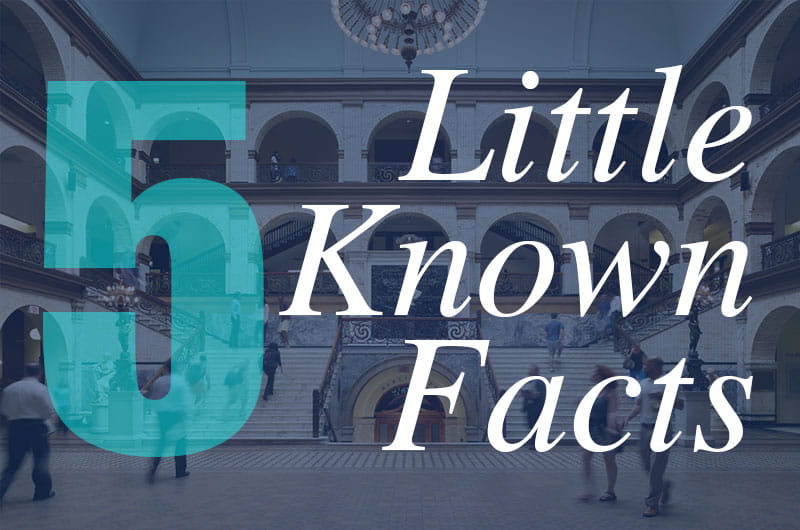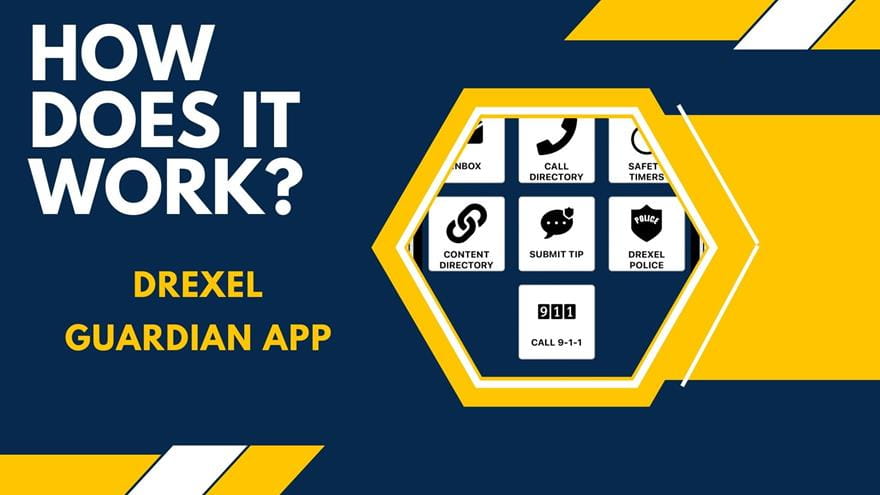Five Little Known Facts: Drexel University Office of Alumni Relations

It’s no surprise that Drexel University students of yesteryear likely had a very different experience than students do today.
In the time when it was known as the Drexel Institute of Technology, there were fewer students on campus spending less time here, and those personal ties to the campus community might not have had as much time to be nurtured and grow.
Then, with the innovations and increase of enrollment and faculty size brought by President Constantine Papadakis starting in the ’90s, as well as the rise in jobs requiring college degrees and of young adults going to college, it can be said that students started to engage with the campus — and each other — differently. They were staying here longer, more were living on campus and increased diversity in degree programs promoted an equally diverse, thriving student community.
According to Lauren Villanueva BA ’04, MS ‘09, assistant vice president for Alumni Relations at Drexel, this is likely why the University’s active alumni community has continued to grow equally as strong, with many alumni choosing to stay connected after graduation.
“I’ve been working here for 10 years now, and we used to really just see the older population come out to things,” she said. “But I think people have just had such a great experience here at Drexel for various reasons that they want to continue that when they’ve left. So we see them coming back. I think it’s a testament to what Drexel has done here in terms of building that community, and then I also think the programming that we offer for alums is very engaging.”
So, Class of 2018, will you be joining this young, active alumni community following graduation? If you’re having reservations, that may be because of one of the following misconceptions:
I’ll keep in touch with everyone who was important to me at Drexel, so there’s no need to become an active alum.
Villanueva said this is something she and those from her office who interface with current students often hear. And it’s great! But that doesn’t mean your Dragon network can’t continue to grow following graduation, and it might even benefit you to make sure this happens. What if, in the future, you move to a new city where you don’t know anyone? What if you change careers?
“You can take advantage of the network of 150,000 alumni worldwide that have had a shared experience to you, so that you know wherever you end up, you’re likely to find a Drexel Dragon there,” Villanueva said.
Of these 150,000 alumni, it’s no surprise that nearly half of them live in the Philadelphia metro area. However, Drexel also has substantial alumni presences in New York, Washington D.C., and in Northern and Southern California. In the words of Villanueva, Drexel alums are “literally everywhere.” If someone moving to a new city has questions or wants to make a new friend, they can connect with Drexel Alumni and be put in contact with Dragons in the city to help with new opportunities.
A large segment of programming through the Alumni Relations office is also focused on career services, including résumé writing, leadership and work-life integration. This programming also connects alumni with shared professional interests.
“Alumni do tend to engage with us because of that networking potential,” Villanueva said. “The value of the alumni network is to either teach them something that they would like to know to advance in their current career or to help them find the next opportunity.”
I’ll need to contribute money in order to be considered an active alum.
Another misconception among students and recent grads is that people reengage with the University only when they’re older and nostalgic, and in a good place to give back financially.
“But we see the opposite,” Villanueva said. “We see that it’s people who are early on in their career that are seeing real value in coming back. The idea is that you can engage with people who’ve had a similar experience to you or who are at the same stage in life you are and there’s still a place for you here at the University and among that group.”
Forty percent of the alumni coming to alumni events and volunteering through the University have graduated in the last 10 years, Villanueva said. And though philanthropy is part of this ongoing relationship with Drexel, alumni are encouraged to support the University in other ways.
“There’s lots of ways to be meaningfully engaged with the university that don’t just result in writing a check,” Villanueva said. “It’s coming back to events, it’s having an active interest in what’s going on at the University or it’s volunteering your time to make this place better or more sustainable for the next generation.”
Being an active alumnus doesn’t have perks.
Maintaining a relationship with the University as an active alumnus is also not a one-way street. There are a variety of advantages, most notably for recent grads as well as those who remain in the Philadelphia area.
If staying local is your post-grad plan, the alumni card will help you maintain access to a variety of amenities on campus, including the Drexel Recreation Center (membership fee is required), Library Services and the Korman Computing Center. Cardholders can also enjoy discounts on campus events at Mandell Theater and at basketball games.
And for the Class of 2018, make sure to mark your calendars for the Alumni Relations department’s signature events next year: Global Night of Networking in September; Homecoming in January; and Alumni Weekend in May. You will have access to either complimentary admission or discounts for these cornerstone campus events.
I won’t find a way to get involved as an alumnus that interests me.
Villanueva said that her office also prides itself on engaging alums according to what mattered to them most while they were at the University, or a shared interest, as opposed to how some schools focus on a class year. There are alumni programs or volunteer opportunities or a group that you can join as an alum to connect with like-minded Dragons.
Additionally, there are alumni-centric volunteer opportunities for those looking for a way to give back. Whether that’s through helping with new student recruitment through alumni ambassadors, planning an alumni program in your city or meeting up with fellow Dragons, these opportunities are abundant.
My involvement as an alumnus isn’t important to the future of Drexel
Alumni who remain engaged are the biggest statement of confidence about the University’s importance to the outside world, Villanueva said. Even if it’s just a “like” on a Drexel post on social media. Any way you choose to remain involved — from keeping up with campus news to donating time or money — helps promote the University to the next generation of students or within your community.
“Alumni are our best ambassadors,” Villanueva said. “So if you had a great experience here at Drexel because of a program you were in or a sport you played or what your co-op experience was, we need you to tell other people about it so that they recommend Drexel to prospective students, or that they hire students for co-op, or if it peaks their interest in what Drexel is doing.”
Grads can stay connected online through LinkedIn, and find out more about the perks of being a young active alum by downloading the New Graduate Guide.
In This Article
Drexel News is produced by
University Marketing and Communications.

